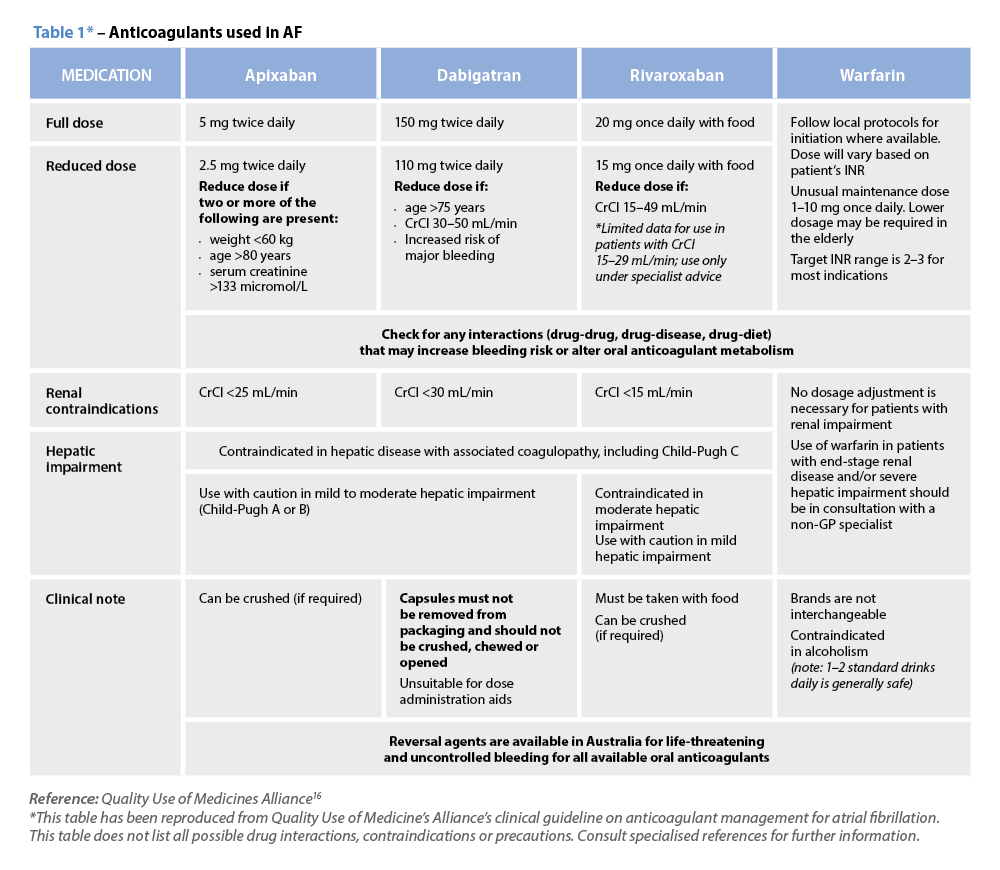Recruitment is a perennial challenge for rural pharmacy. So what is being done to change this?
It will come as no surprise to many pharmacists to hear there’s a severe shortage of trained professionals to fill positions in rural and regional pharmacies around Australia.
The 2017 Labour Market Survey highlighted the shortages of pharmacists in regional Queensland, Victoria, Tasmania, South Australia and the Northern Territory. In Queensland alone, 43% of regional employers surveyed couldn’t attract any suitable applicants for their vacancies. In contrast, 89% of metropolitan vacancies were filled.
There are many reasons why recruiting staff for rural pharmacies is a challenge.
Dr Michelle Bellingan MPS, Head of Pharmacy at James Cook University (JCU), believes it boils down to a fear of the unknown and social isolation.
‘Unless they’ve actually experienced rural life, they won’t realise that people who live in those areas sometimes have better social lives than people in bigger centres. You actually get very busy if you choose to immerse yourself. It’s more just a case of they don’t know.’
According to Dr Mark Kirschbaum, Chair of the Rural Pharmacists Special Interest Group, there’s also a lot of apprehension about a lack of professional involvement and professional isolation. ‘Working by yourself, you don’t get any peer-to-peer support,’ he said.
Dr Kirschbaum also believes pharmacists may be afraid of working in rural practices because they worry they won’t be able to find locums to fill in while they take time off.
‘Having rural specialised locums that can travel and give owners a good decent break every year or every second year would be very helpful. That would provide a lot of comfort.’
There are concerns too about accessing CPD, the high on-costs of running a rural pharmacy, meeting the communities’ needs with scant resources, and keeping families happy – with limited schooling a deal-breaker for some. So what can be done to overcome these challenges?
Dr Kirschbaum said better internet access around the country is already helping overcome the sense of isolation. There are several avenues for online mentoring and interaction, such as PSA’s Rural Pharmacists Special Interest Facebook group.
The internet also offers an alternative mode of delivery for CPD, while there’s financial support available for pharmacists who want to travel to faceto- face professional development via the Pharmacy Guild’s rural funding program.
Integrating better into the local community and developing good relationships with other practitioners in their area will help pharmacists transition more easily into rural life. Dr Kirschbaum suggests local primary health networks (PHN) could help with this.
‘PHNs could facilitate a lot more social aspects, perhaps joint therapeutic meetings and things like that to get the pharmacist involved in the local hospital and give them a broad range of experiences.’
And finding a locum may not be as difficult as imagined. Sue Muller, owner and manager of LocumCo, has been specialising in pharmacy recruitment for more than 30 years. Her company has a 100% success rate at finding locums listed with them and runs the Pharmacy Guild’s Rural Emergency Locum Service.
‘From our point of view, the pharmacy never needs to be short staffed if they’re waiting for another pharmacist, because we can certainly find short-term locums to tide pharmacies over.’
Ms Muller said creative recruitment using videos and images can help lure candidates, and that interviews with rural pharmacists could show that rural life is a really positive experience.
She also suggests pharmacists ‘try before they buy’: ‘Rather than pack up and commit straightaway, they could do a locum for a finite period, so they get an idea of what the community is like and what it would be like to live there.
And perhaps they’ll love it and sign up.’
PSA National President Dr Shane Jackson was quick to point out what there is to love about rural life.
‘You often have much closer relationships with the other healthcare professionals there. Because there might be limited healthcare services, everybody seems to pull together more closely to deliver healthcare.
‘You might be the only pharmacist in an area, so the relationships you develop with the community and with the individual patients are probably closer than what might happen in a more metropolitan area.’
He said there’s also a lot more opportunity for innovation in the country. ‘Because there’s often a lack of access to healthcare professionals, sometimes we might need to use the health professionals we do have in innovative ways.’
Pharmacy owners and managers have also started going to great lengths to spruik the positives of working in their towns. With eye-catching videos and photographs on Facebook, Instagram and alumni websites, they tell of warm and friendly locals, vibrant cultures, idyllic lifestyles by the sea, and adventures to be had in the bush. They offer a range of incentives, such as higher-than-average wages, accommodation, vehicles and moving costs.
Yet, they still struggle to fill vacant positions. Why?
Dr Bellingan said pharmacy managers and owners are pulling out all stops to hire staff, but there’s a severe shortage in the pool of potential recruits, particularly at regional universities.
‘When I first arrived at JCU, we had quite large first year numbers, I would say close to 100. We have to work really hard to get about 50–60 students nowadays. The numbers of interns that come out of JCU pharmacy don’t meet the needs of this particular area or even beyond that.’
For practising pharmacists, it’s a greater problem than just money – integrating pharmacists into the community is key.
‘We can get a pharmacist out there, but they won’t stay. And the reason why they won’t stay is because they don’t feel part of it,’ Dr Kirschbaum said.
‘It is a whole of community drive that should try to get health practitioners out there. Even if there’s a recruiting campaign that involves the locals. Pharmacists need to feel welcomed into the community.’
So what can be done to improve recruitment? Tweaking Australian undergraduate programs, so they offer longer, more structured exposure to rural and regional environments, could go some way to increasing rural pharmacy numbers.
Dr Kirschbaum believes the student experience is vital for addressing the rural workforce shortage. ‘If we can get rural placements right, the attitudes of people wanting to go out bush will change. There’ll be less stigma, there’ll be less feeling of isolation, and fear and misunderstanding of what it is like to move away from a capital city. Even if they don’t go straight away, some years later they might enjoy the idea of going to the bush,’ he explains.
Increasing the number of pharmacy students overall could also help relieve rural recruitment woes. The 2017 Labour Market Survey results confirm the number of pharmacy students and graduates does not meet increasing demand for qualified and experienced pharmacists around Australia. However, these changes would only affect new graduates. To lure experienced pharmacists away from city life, other strategies are required.
Similar to those outlined by the AMA in their position statement ‘Five-point plan to build rural medical workforce’, these strategies might include better facilities and resources; increased professional support and specialised training; more flexible working arrangements, including locum support; opportunities for families, including employment and education; tax relief; and other financial incentives.
Recently, Anthony Tassone, President of the Victorian Branch of the Pharmacy Guild of Australia, suggested the government consider a scheme for rural pharmacists like that offered to military personnel. In this case, pharmacists who have worked a set number of years in rural or regional areas would be given a discount on their HECS/HELP loan.
In addition, while financially challenging for some rural and regional pharmacies, offering more money, accommodation, relocation assistance and other benefits, does give positions an edge over others – especially when pharmacies are trying to attract more experienced staff who may have family to consider.
But when it comes down to it, there’s no silver bullet to fix the shortage of pharmacists – or other health professionals – in our rural and regional areas.
‘It is difficult. Most of the pharmacy owners and pharmacists and pharmacy managers within rural areas always cite difficulties in sourcing pharmacists. That’s a fact,’ Dr Jackson said.
‘But that’s a fact across healthcare. That’s a fact for doctors and physiotherapists and nurses. It’s just an issue in rural Australia. There’s no doubt that we need to do better at trying to get pharmacists and other healthcare professionals in rural Australia.’
What about rural and regional hospital pharmacies?
In rural and regional areas, hospitals can also face recruiting challenges.
Regardless of the employer, pharmacists moving to these often remote areas have the same concerns, including social isolation, a lack of infrastructure and their family’s happiness. They may also experience the same fear of the ‘unknown’ if they haven’t done adequate rural training during their studies, or worked ‘out bush’ in another role or as a locum.
However, there is good news for rural and regional hospitals. Despite their location, many of these hospitals are able to get pharmacists to apply for – and accept – roles working for them.
Several things may explain this phenomenon. ‘The attraction in hospitals is that the salaries are marginally higher if you’re interested in a regional area. Certainly in Townsville, hospital pharmacists get an edge on community pharmacists in terms of money,’ said James Cook University’s Dr Bellingan.
‘They also have hours that are more appealing to people, especially if they have young families. Hospital hours tend to be more regular, sometimes 8am – 4pm, and no weekends. So … you’ve got a little bit more time to do other things.’
Recruiter Sue Muller believes there’s also been a shift in interest of new graduates to work in a hospital environment, leading some to try work in rural and regional areas.
‘To secure such a role, I imagine they would be willing to step out of their comfort zone in order to get a foot in the door.’
While rural and regional hospital positions may be attractive to some pharmacists, others thrive better as part of the community workforce.
‘It’s about finding the right fit. It’s not going to be for everyone. Yes, hospital might be more attractive for some, but then there are other people who would say, “No, it’s not for me”,’ Dr Bellingan said.
In the small Queensland town Curra, 80 km north of Gympie, pharmacist Sam Skellern MPS goes above and beyond for his customers. They couldn’t be more grateful.After work, Sam locks up his pharmacy and starts his rounds, visiting the aged and infirm to check their welfare and deliver medicines, including Webster-paks he makes up for them. ‘At 6pm in the dark, he drives into the driveway and he walks down with his white suit on, like a knight in shining armour,’ said James Sweeney, one of his customers. ‘We would be at a loss without him. He’s an absolute credit to the industry.’ Mr Sweeney, who uses a wheelchair, finds it difficult to leave his home. ‘I’m only 2.2 km from the chemist, but I may as well be in Africa. By him delivering, it’s enabled me to get all my medications regularly. I just pay for them over the phone.’ This home-delivery service is on top of Mr Skellern’s already-busy schedule. He is the pharmacy’s full-time manager and head dispenser. He runs the pharmacy’s clinical programs, and does its advertising and banking. He’s also part of the local fire brigade and hall committee. And he wouldn’t have it any other way. ‘I absolutely love it. We get a lot more person-toperson contact. We’ve got people who’ll pop in just to say hi and let us know how they’re doing. We get a lot more patient follow through as well,’ Mr Skellern said. He said rural work offers the opportunity for better collaboration with local doctors than you might get in the city. ‘I have had doctors call me for recommendations on their patients or to work out what the most efficient way is to get the outcomes they’re after.’ He also has a solution to the sense of isolation some people experience living in the bush. ‘You’ve got to be willing to put yourself into the community. If you’re not willing to embrace the area, it’s going to wear you down pretty fast.’ |
Further resources
Join PSA’s Rural Special Interest Group Facebook page at facebook.com/groups/270720480061714/




 ‘We’re increasingly seeing incidents where alert fatigue has been identified as a contributing factor. It’s not that there wasn’t an alert in place, but that it was lost among the other alerts the clinician saw,’ Prof Baysari says.
‘We’re increasingly seeing incidents where alert fatigue has been identified as a contributing factor. It’s not that there wasn’t an alert in place, but that it was lost among the other alerts the clinician saw,’ Prof Baysari says.


 Beyond the arrhythmia, AF often signals broader pathological processes that impair cardiac function and reduce quality of life and life expectancy.5 Many of these conditions are closely linked to social determinants of health, disproportionately affecting populations with socioeconomic disadvantage. Effective AF management requires addressing both the arrhythmia and its underlying contributors.4
Beyond the arrhythmia, AF often signals broader pathological processes that impair cardiac function and reduce quality of life and life expectancy.5 Many of these conditions are closely linked to social determinants of health, disproportionately affecting populations with socioeconomic disadvantage. Effective AF management requires addressing both the arrhythmia and its underlying contributors.4  C – Comorbidity and risk factor management
C – Comorbidity and risk factor management Warfarin
Warfarin




